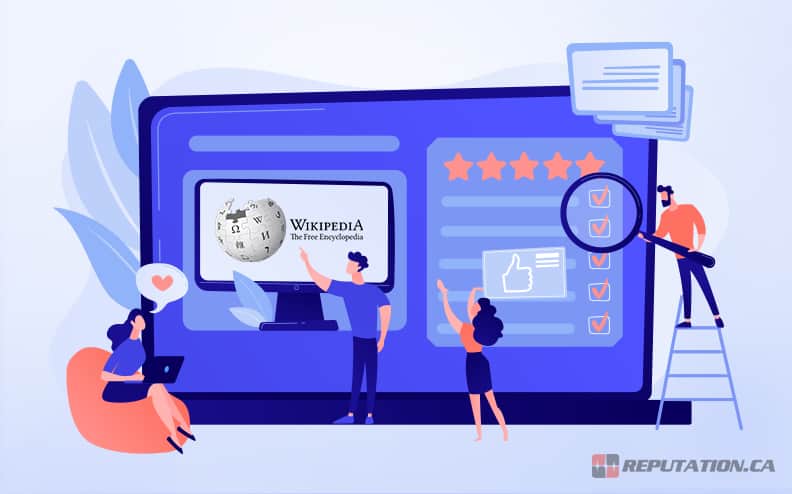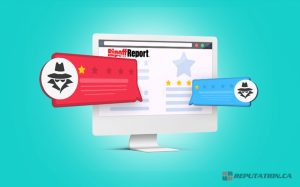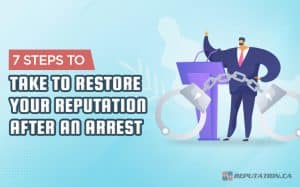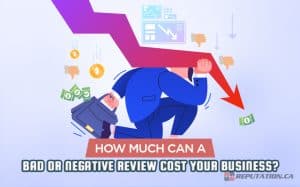Companies work for decades to build themselves with products and services that appeal to modern markets. This need to remain relevant to modern customers and clients has made running a business more challenging than it once was.
Originally, businesses could rely solely on traditional advertisements and word-of-mouth. Modern consumers are more discerning than they were 50 years ago and are more likely to investigate the companies they intend to use. This usually means customers are less willing to accept public statements from the business as fact.
Instead, they will rely on the information they discover to determine if the company is worthy of their business. This research is generally limited to perusing reviews, but sometimes customers want more background information beyond current events.
Wikipedia is one of the main tools people use when looking for information about a person or group. Wikipedia is one of the most popular websites on Earth because it provides a history of the article’s subject. Nowadays, almost everything has a Wikipedia page that we can peruse at our leisure to find out information previously unknown to the user.
A Wikipedia page about your business can either be a valuable asset or a major detriment depending on how well-regulated it is. Because of the importance of Wikipedia articles, many companies have considered turning the website to their advantage. However, you might be wondering whether a business can effectively create its own Wikipedia page without running afoul of customers and Wikipedia users.
Why Are Wikipedia Pages Important to Your Reputation?
A Wikipedia page is common for virtually every business, product, and person of interest worldwide. Most people use the website to gather general information about anything in these categories. This could be anything from when and where a celebrity was born to the medicinal applications of a holistic plant from India. Regardless of the reason, people can find important details about almost anything through Wikipedia.
Insofar as businesses are concerned, Wikipedia articles give prospective customers insight into the founding of the company and the background of its services and products. This information is seemingly innocuous since it is generic data that virtually anyone could access.
Information written in a Wikipedia article is required to be supported by factual data such as research articles. Truthful claims about a business’s malfeasance can be posted on the associated Wikipedia page without the risk of deletion. While this is not inherently a threat to a business, it means that Wikipedia pages can provide information about your business’s previous transgressions. This accounts for lawsuits, faulty products, and other issues that might dissuade a customer from using your service or product.

This information being readily available is not something you can avoid, but the Wikipedia article can make it easier for people to access it. This means your business’s past mistakes, as outlined on Wikipedia, could damage your public image. While real information can harm your reputation, you have the potential to grow from it rather than let it define your company forever. Unfortunately, Wikipedia’s greatest weakness is that anyone using the website can edit an existing article as they see fit. While Wikipedia has a small group of administrators who attempt to remove false information whenever possible, there are few in number and millions of articles.
This means some false information can slip through the cracks and stay up long enough to damage your reputation before you realize it exists. This means the creation of a Wikipedia page can sometimes spiral beyond the original author’s control when another user feels like pulling a prank. Fortunately, this is a rarity and one we will discuss later. Nevertheless, the impact a Wikipedia page has can also be positive.
A company with a history of charitable contributions or products that improve the quality of life for customers is viewed favorably. Companies that have stumbled in the past can regain goodwill if their history is positive. This means a Wikipedia article has the potential to be harmful or beneficial depending on the background specific to the business. Ultimately, there will be a Wikipedia article about your business once it gets large enough. The question is: who should draft it?
Can You Make a Wikipedia Page For Your Business?
The simple answer to whether a company can create its own Wikipedia page is “yes.” It is within the business’s power to create a Wikipedia page focusing on its history, products, etc. The question Wikipedia forces us to ask is: should we?
Wikipedia advises companies and individuals against creating personal pages because of one important factor. Wikipedia espouses the principle of objective information and requires all articles on its website to be written from a “neutral point of view.” This neutrality is designed to keep the information in a Wikipedia article reliable and untainted by personal agendas.

Conforming to a neutral point of view, per Wikipedia’s criteria, requires posters to maintain the following requirements:
- Avoid stating opinions as though they are facts. For example, a Wikipedia article cannot state that a company’s products are objectively “the best” unless an official record corroborates that opinion.
- Avoid stating facts as though they are opinions. This is the opposite of the above and prevents Wikipedia articles from understating factual concepts supported by data. For example, a Wikipedia article about the Earth cannot state that the Earth is spherical is an opinion when all research confirms it is.
- Avoid stating contested assertions as fact. When multiple reliable sources debate something, but there is no evidence confirming one opinion, none of them can be construed as factual in the Wikipedia article.
- Avoid judgmental terminology or language. A Wikipedia article cannot sympathize or empathize with one side of the argument over another. This means an article about a business cannot take previous misconduct personally nor undermine the effect that misconduct had on the victims. Instead, the language must remain detached from either side of the issue.
- Give opposing views their fair share of the spotlight. In articles where the subject is being debated, it is important to ensure that all opinions are fairly expressed in the article to inform the reader fully.
Because Wikipedia articles are written from a place of neutrality, the website actively discourages websites from drafting their own articles. While Wikipedia does not automatically purge articles written by the subject, it will receive extra scrutiny to ensure the neutrality requirements are met. Wikipedia is concerned about this issue because some companies will willingly omit key information to present themselves more favorably to Wikipedia’s users. This is a direct violation of Wikipedia’s neutrality requirements and disregards the rights of its users to access reliable information.
While we are not saying you would intentionally hide negative details about your business to protect your reputation, it is a concern of Wikipedia. Therefore, if you plan on writing your business’s Wikipedia, you must take extra care to adhere to the above requirements or risk having the article deleted by Wikipedia’s administrators. These requirements are not limited to the page’s creation; you must maintain Wikipedia’s standards after the article is published on the website.
Can You Edit a Wikipedia Page For Your Business?
While creating a Wikipedia article is important, the biggest challenge lies in maintaining it after publication. We mentioned earlier that a Wikipedia page can be edited at will by anyone reading it regardless of credentials. This means a business’s disgruntled customer could access the company’s Wikipedia page and change the entire article to talk about how the business’s owner likes to dance in a dress while howling like a wolf.
While that phrase is absurd and nonsensical, it is possible for a Wikipedia user to post it and for the change to go unnoticed by Wikipedia’s administrators. This can be infuriating since the false information posted on a Wikipedia article can accuse your company of misconduct that never occurred.
Given Wikipedia’s preference that companies not write their own articles, it might stand to reason that they are equally reticent to let a business edit an existing article. Fortunately, it is still permissible for your business to edit its associated Wikipedia article if the editor adheres to the neutrality requirements outlined in the previous section. This is a critical component of reputation management when dealing with a website like Wikipedia, where your company’s history is laid bare. Nevertheless, other restrictions ensure you cannot edit your Wikipedia page to mask details about your business.
Wikipedia enforces a “conflict of interest” policy that forces companies to adhere to certain restrictions and requirements. If the company’s intentions conflict with its ability to remain impartial, Wikipedia will reverse the edits altogether. Therefore, any edits made to the Wikipedia page about your business should be limited to removing false edits and adding new information that is backed by factual data. Otherwise, you will run afoul of Wikipedia’s editors and demonstrate a lack of professionalism to your customers.
Despite the requirements to avoid conflict of interest in Wikipedia editing, most companies edit the articles about their services themselves or retain the services of others to edit on their behalf. This enables the companies to protect their reputation from faulty information added to the page by disgruntled customers.

While Wikipedia does not directly prevent people from editing articles about themselves, it is strongly discouraged, and an administrator might undo your alterations if they are biased. If you do have a conflict of interest, Wikipedia recommends you adhere to the following suggestions:
- Disclose your conflict of interest to Wikipedia’s users and administrators when editing the associated articles.
- Do not edit the articles directly; instead, make suggestions about possible changes via the associated talk page.
- Alternatively, you can post your recommendations on Wikipedia’s COI noticeboard, where they can be peer-reviewed before making an edit.
Finally, Wikipedia frowns on paid editing since a service that edits your Wikipedia article on your behalf has a financial conflict of interest. Nevertheless, no active restrictions prevent you from editing the article yourself or hiring a third party to do it for you. Bear in mind that editing the article deceives readers and keeps actual information from them. Lying to your customers by altering the Wikipedia article could cause more damage to your reputation than the original information would. This is because people are more willing to forgive a company if they are honest about their past and genuinely try to correct their behavior.
If your Wikipedia article is not what you want it to be, it might be best to hire a 3rd party to assess and enhance the article on your behalf. They can be contracted to comply with Wikipedia’s neutrality and conflict of interest requirements and edit the article and remove faulty information. The trick is finding a representative who can follow Wikipedia’s guidelines and act in your best interest.
Take Your Reputation Back!
Wikipedia is one of the most visited websites in the world since it provides clear information in an easily accessible medium. Wikipedia’s biggest weakness is the accessibility of the editing option that enables anyone to change an existing article. This means the subject of an article can take a hit to its reputation just because one user decided to alter the article to reflect inaccurate information. This means your business could already suffer because of an edit to an article you did not realize existed. While drafting your own Wikipedia article is considered a gray area, editing an existing article through a reputation management firm is less ambiguous.

We at Reputation understand the damage a Wikipedia article can cause to your image if the wrong person drafts or edits it. That is why we offer services that allow us to edit your Wikipedia article on your behalf. We will also ensure we remain in line with Wikipedia’s requirements to ensure the edits are considered valid by Wikipedia’s standards, though we cannot create the article on your behalf. Editing a Wikipedia article detailing your company is only one part of managing your reputation in modern society, but it is essential. If your Wikipedia article needs a little touch-up, visit our website today and let us help you take your reputation back!











